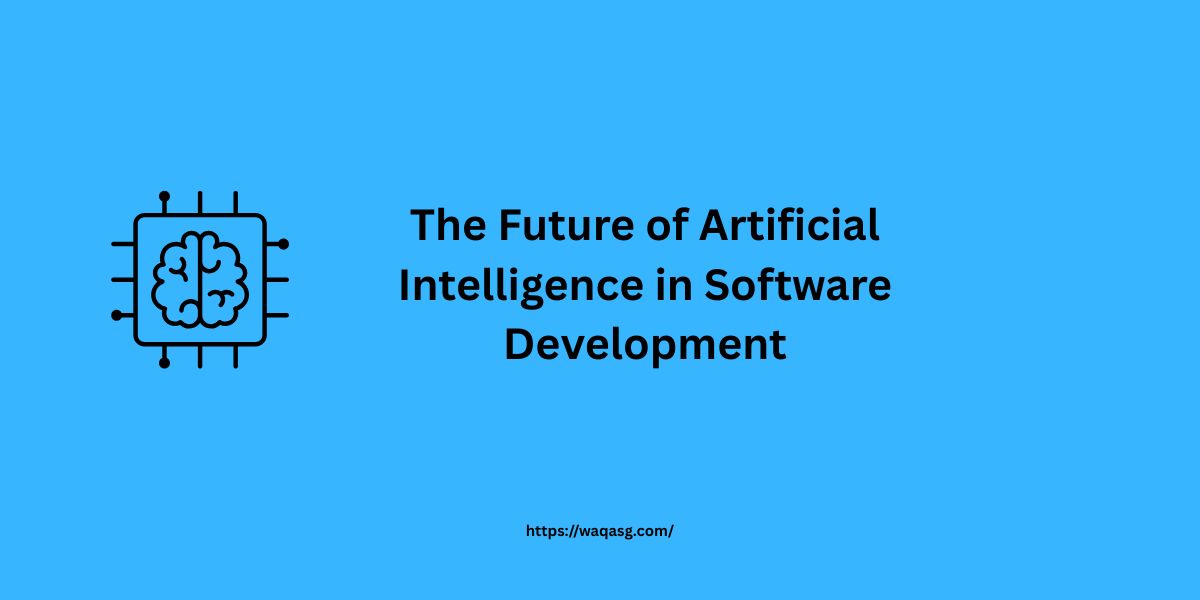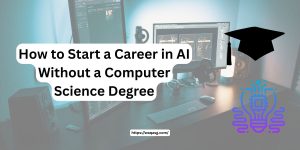
The Future of Artificial Intelligence in Software Development
Artificial Intelligence (AI) is transforming the way software is developed, tested, and deployed. From automating repetitive tasks to improving code quality and optimizing workflows, AI is revolutionizing software engineering at an unprecedented pace. But what does the future hold for AI in software development? Let’s explore the key trends, benefits, and challenges of AI-powered software engineering.
1. How AI is Changing Software Development
a. Automated Code Generation
AI-powered tools like GitHub Copilot and ChatGPT are helping developers write code faster by suggesting entire code snippets, functions, and even complete algorithms. These tools learn from millions of lines of open-source code and provide context-aware recommendations, reducing the time spent on manual coding and debugging.
Additionally, AI is not just transforming software development but also enhancing various aspects of personal and professional growth. Learn how AI can be leveraged for self-improvement in Unlocking Personal Growth: How to Use AI to Enhance Your Life in 2025.
b. AI-Powered Testing & Debugging
Traditional software testing is time-consuming and prone to human error. AI-driven testing tools like Applitools and Test.ai automatically detect bugs, optimize test cases, and improve code coverage. AI can also predict potential failure points before they become critical issues, ensuring more reliable software.
c. Intelligent Code Review
AI-based code review tools analyze code for security vulnerabilities, inefficiencies, and bad practices. Platforms like DeepCode and CodeGuru use machine learning to scan codebases and provide actionable insights, helping developers maintain high-quality, efficient code.
2. AI and Software Engineering Trends
a. Low-Code & No-Code Development
AI is making software development more accessible through low-code and no-code platforms like Bubble, OutSystems, and Microsoft Power Apps. These tools allow non-programmers to create applications using drag-and-drop interfaces and AI-assisted automation, democratizing software development and reducing development time.
b. AI in DevOps & CI/CD Pipelines
AI is enhancing DevOps practices by optimizing Continuous Integration/Continuous Deployment (CI/CD) pipelines. AI-driven automation tools like Harness and Spinnaker help identify deployment risks, optimize infrastructure, and improve release efficiency, making software deployment faster and safer.
c. AI-Driven Cybersecurity
With the rise in cyber threats, AI is playing a crucial role in securing software applications. AI-powered security solutions can detect anomalies, prevent fraud, and identify vulnerabilities in real time. Tools like Darktrace and IBM Watson Security analyze massive amounts of data to predict and prevent cyber threats before they happen.
3. Challenges of AI in Software Development
Despite its many advantages, AI in software development comes with its own set of challenges:
- Bias in AI Models: AI-powered code assistants can sometimes generate biased or insecure code based on training data. Ensuring fairness and security in AI-generated code is a significant challenge.
- Lack of Human Creativity: While AI can generate code, it lacks human intuition and creativity, which are essential for problem-solving and innovation.
- Ethical Concerns & Job Displacement: AI automation may replace some repetitive software development tasks, raising concerns about job security for junior developers. However, it also opens new opportunities for AI-specialized roles.
The impact of AI extends beyond software engineering—it is revolutionizing industries such as healthcare as well. To see how AI is reshaping patient care, check out The Role of Artificial Intelligence in Modern Healthcare: Revolutionizing Patient Care.
4. The Future of AI in Software Development
As AI continues to evolve, we can expect:
✅ Fully AI-Generated Software: AI models that can develop complex applications with minimal human intervention.
✅ Enhanced Collaboration Between AI & Developers: AI will act as a co-pilot, assisting developers in writing, debugging, and optimizing code.
✅ More Personalized AI Assistants: Future AI assistants will understand individual coding styles, team workflows, and project requirements to provide more personalized recommendations.
Conclusion
AI is revolutionizing software development by making coding more efficient, improving software quality, and automating repetitive tasks. While challenges exist, the potential for AI in software engineering is vast. Developers who embrace AI-driven tools and stay updated with emerging trends will be better equipped for the future of software development.
🚀 Are you ready to integrate AI into your software development workflow? The future is now!




1 Comment
[…] a deeper understanding of how AI is shaping industries, check out The Future of Artificial Intelligence in Software Development and The Role of Artificial Intelligence in Modern […]